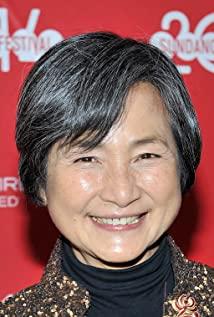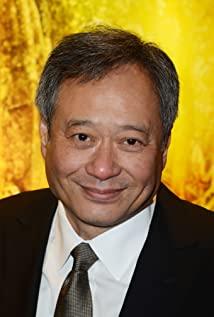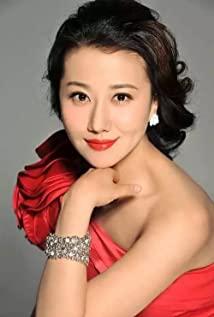——The original purpose is also the last obstacle. Quietly, we embrace in a world that words fail to illuminate. The unformed darkness is terrifying, the possible and the impossible fascinate us. What suffocates us are the sweet words of dying. His specter shrouded us, freeing us, swimming into the freedom and beauty of the chaos of love. ——Mu Dan's "Crouching Tiger, Hidden Dragon" is a return to Ang Lee's poetic imagination of traditional China. In an unilluminated euphemistic context, the twisting of the blade and the swinging back of the sword are transformed into a flowing way of moving clouds. The essence of speech is placed between formation and separation. Behind the form stands an aesthetic system of sound and sound. The meaning is separated from the text and cannot be interpreted exhaustively. The film builds a powerful image system, which more completely and three-dimensionally restores the market streets and chivalrous rivers and lakes of China in the Qing Dynasty. The combination of macro and subtlety under the lens, the classical layered pavilions and carved beams and embroidered households constitute a linear accumulation, the exquisite martial arts design adds to the operation of the plot, and contains the bookish air of ink and wash in the bones, which is very visual. Effect. Especially in the scene of Yu Jiaolong stealing the Qingming sword from the night, the figure lingering on the waves and jumping on the tiles of the house in the night, creatively showing the whole picture of Qinggong. The fluorescent red lanterns sway between the grids of the passageway of the mansion. They are laid out like dots, lines and planes, which is also a collection of traditional Chinese images. Large blocks of iconic colors are used in the painting, such as the bright yellow outside the fortress, the gray and black of the cave, the darkness of the capital and the green of the bamboo forest. The scene transitions are clear and the personality is outstanding. The music with the low and sad cello and the warm and dense drum beats creates a sound situation where the melody moves in the heart. In the alternating loop of ups and downs, the symbolic charm of advancing and retreating is about to emerge. The selection of the subject matter of the martial arts world presumes the illusory nature of the story, creating a static and independent space beyond the flow of time to bridge the gap between ideal and reality, enriching the form of expression of ideas, and facilitating the development of metaphysical artistic conception and the sublimation of the theme. In the ambiguous context of explicit and implicit mutual understanding, the film is like a summoning structure full of cohesive attraction, the center of which is the Qingming sword as the traction of desire and the jade dragon as the main body of desire. As Ang Lee said, "Everyone has a sword of Qingming in his heart." The sword that is endowed with symbolic meaning, in Freud's libidinal world, is a metaphor for the male genitalia. In the title of "Crouching Tiger, Hidden Dragon", "dragon" and "tiger" refer to the desire to hide and lie in the human heart, which has full autonomy and uncontrollable danger. And "dragon" in Western culture is the embodiment of evil and greed, and it is bound to stir the peace. "Book of Changes" says: "The metaphysical is called the Tao, and the metaphysical is called the implement." At the beginning of the film, a sword as an implement is introduced. Alludes to the relationship between people and objects. Li Mubai donated the Qingming sword to Tie Xiaobeile in order to stay away from the grievances and grievances of the rivers and lakes. The so-called "gentleman is not an instrument" clearly demarcates the boundary between the spirit as meaning and the material as carrier. The Wudang School to which Li Mubai belonged is the representative of Taoism. Just like the vain spread of the Sanyuan Dan method, it advocates that the practice of refining the spirit and returning the emptiness tends to forget things and do nothing. When Li Mubai pointed out the Yujiao dragon swordsmanship, he said: "Don't help, don't grow. Don't, don't argue. Ignorance and no desire, self-denial and obey others can I obey others." "Preserving Heaven's Principles, Destroying Human Desires". The two theories of Confucianism and Taoism collided ingeniously in Li Mubai. However, Li Mubai, who had sealed the sword and returned to the field, did not achieve the "consummation" he hoped for, but fell into confusion. After walking into a deep silence, instead of the joy of attaining the Tao, he was surrounded by a silent sadness that exceeded the limit of what he could bear, and he could no longer continue. This also reflects the paradox of Confucianism and Taoism on human nature. When he returned to the world to deal with the things he "couldn't let go of" after he was released, he encountered a key person, namely Yu Jiaolong who stole the Qingming Sword. Different from the superficial narrative of the story of Yu Jiaolong's dilemma due to his noble blood and parental kinship in the original book, the film cuts off the burden of social identity and psychology for Yu Jiaolong, and pays more attention to Yu Jiaolong as the ontology of life. Ultimate existence thinking, elevating the subject implication to a more transcendent philosophical system. Yu Jiaolong, who has a stubborn spirit, desperately takes away the Qingming sword, is actually experiencing the pleasure of conquering and being conquered by the combination of the subject and the object of desire. She follows the survival law of complete egoism, looking for the ultimate carrier of self-idea. Yu Jiaolong is a character who lacks a sense of objective reality. She is the spiritual desire of the people's hearts throughout, which is an abstract symbol composition. Even if the body eventually dies and the value remains, it is a new kind of existentialism. Yu Jiaolong is a complete breaker of the rules, while Yu Xiulian is the spokesperson of the feudal ethical order and a trapped one. The three obedience and four virtues that she repeatedly instilled in Yu Jiaolong, such as "women always want to marry" and "parents can't be left behind", as well as the "faithfulness and teachings" that she abides by while walking in the rivers and lakes, are all bound by the confinement of free individuals. Yu Xiulian herself, because of her loyalty, couldn't "love just love" like Yu Jiaolong, and couldn't take a step closer to her own feelings. The relationship between Yu Jiaolong and Yu Xiulian implies the combination and collision of Chinese feudal thought and Western romanticism, which is the transformation and conflict of repression and release. Between Yu Jiaolong and Yu Xiulian, they must go through the process of admiration, attachment, separation and confrontation. They recognize each other as mother and daughter. eager Yu Jiaolong, who broke free from the shackles of the world, at first longed for the world of Jianghu where Yu Xiulian lived. She thought that escaping from the clan society would give her freedom in the true sense, but unexpectedly she fell into another cage. The rivers and lakes that seem to be happy and enmity actually have a more sophisticated and rigid array trap, and freedom and indulgence once again face a deadly enemy. When Yu Jiaolong and Yu Xiulian broke up, she threw a sentence: "From now on, I will recognize the sword but not the person!" Once again disappointedly escaped from the territory he had expected to enter, which was a kind of criticism and abandonment of self-cognition. Li Mubai's relationship with Yu Xiulian and Yu Jiaolong is quite different, and this is where the theme mapping lies. There is a saying in Taoism that "a lonely yang does not grow, and a lonely yin does not grow", which means that the matching of yin and yang will lead to positive results. Therefore, Xu Haofeng once commented on "Crouching Tiger, Hidden Dragon" as "Li Mubai went down the mountain to find love". "This Qingming sword is a false name, and the three words Li Mubai are also false names." Li Mubai, living in a false name, tried to seize some reliable entities to get rid of the lingering sadness of silence. He once said, "Hold tight and there is nothing in it; let go and you have everything." But he has doubted and turned away from this rhetorical attitude and has begun to compromise on material things. To Li Mubai, Yu Xiulian represented a safe retreat, and there was no lust to lead her. The contrast between Yu Xiulian and Yu Jiaolong can be seen in the distinct martial arts styles. Yu Xiulian is simple and powerful, while Yu Jiaolong is light and erratic, symbolizing two femininity. If Li Mubai and Yu Xiulian represent the face of the outer layer of human nature, Yu Jiaolong is the inner child hidden deep inside. Yu Jiaolong is a lustful and provocative person who is full of fighting spirit, and has an almost boiling attraction to Li Mubai. Li Mubai was cold on the surface, but he was actually shaking. Li Mubai had always wanted to accept her as a disciple and domesticate her nature, which was essentially Li Mubai's stubborn desire to control himself. Yu Jiaolong denounced Wudang Mountain as a "tavern and prostitution", and he knew it well. A very metaphorical scene is in the deep and ethereal bamboo forest, among the cascading chaos and love, the bamboo leaves and hair slid across a wild and hostile girl's face. Li Mubai and Yu Jiaolong stood at the ends of the bamboo branches. Although Li Mubai's figure has not changed, he cannot avoid moving up and down with Yu Jiaolong's shaking. The peak of desire is displayed in a ruthless and insensitive way, extremely restrained and controlled. The enchantment by the rocky waterside seems to have completed the ritual of conversion, but it is only a short-lived illusion. In the dripping cave, which symbolizes the mother's body and return, Yu Jiaolong, who has been intoxicated with incense, opened his wet clothes and said to Li Mubai, "Do you want a sword or me?" Li Mu's white eyebrows saw changes in the book, and Fang Zhi experienced ups and downs in his heart. In the end, Li Mubai died at the hands of the blue-eyed fox, that is, the expansion and mutation of desire. he wakes up Now, love and desire are one and cannot be forcibly separated. Desireless love for Yu Xiulian is just a mutual deception. He could not tame his desires, and he would not live or die for it. If Yu Jiaolong's character image is placed in the social form, you will find that she bears some feminist marks. Wu is masculine and is exclusively for men. Yu Jiaolong practiced martial arts at a young age, intending to move closer to masculine traits, so as to break free from patriarchal oppression and gain equal status. Knowing and falling in love with Luo Xiaohu in the desert is the embodiment of women's emotional initiative. Yu Jiaolong's escape from marriage and abandonment of the family is a revolt against the clan framework and the imposed ethical identity that women are forced into. She never agreed to Li Mubai's obvious intention of accepting an apprentice. Yu Jiaolong is a completely independent woman, not a moral subject wrapped in the name of daughter, wife or mother. She does not adhere to the narrow sky and weak wings given to women by the male-dominated society, and does not use seduction or other female means to achieve her goals, but only uses human body will to win the living space. Compared with other female characters such as Yu Xiulian and the blue-eyed fox, they are all weak people who are trapped in the disadvantages of innate females and lack active subversion. Yu Jiaolong started from the blue-eyed fox on the way to seek the liberation and enrichment of vitality. She taught Yu Jiaolong martial arts and infiltrated its paranoid poisonous thoughts. But Yu Jiaolong is not a mediocre talent, secretly learning martial arts according to the words to a realm beyond her. "Forever kiss, forever hatred", the relationship between them is more like a father and son who inherit skills. The blue-eyed fox's dying words "an eight-year-old child has such a scheming, this is poison." It implies the conspiracy in the heart. As Li Mubai said, Yu Jiaolong was not obliterated by the teachings of the blue-eyed fox, because the source of Yu Jiaolong's exploration and struggle was the growth and breakthrough of his own pure spirituality, and it was not limited to worldly disputes. Her aim is only freedom itself. Li Mubai advised Yu Jiaolong to "see your heart", and Yu Xiulian told her to "treat yourself sincerely". However, Yujiaolong's true edge and vigor cannot be stored in any kind of material entity, and cannot withstand any form of identity domestication. It is extremely fluid and explosive. The boundaries of free exile are nowhere to be found. Yu Jiaolong also expressed her panic: "You gave me a dream of rivers and lakes, but I can't see the edge of heaven and earth. I don't know where to go, and who should I follow." Empty, no one to guide. After Li Mubai's death, Yu Jiaolong felt the lack of responsibility behind this wanton freedom, and even felt the delirium of his own existence. "Sincerity leads to spirituality" is still an obsession with desire, which only serves as a psychological remedy for people in this world, and cannot solve the ultimate life puzzle. So in the end, she jumped to explore life and death, and stayed at the moment of destruction and disappearance. Eternal free spirit. Li Mubai said: "What we can touch is not forever." The rivers and lakes are not the other side, and the color of the universe is illusory and deep. The original purpose has evolved into the final obstacle, and the restoration of the essence of human nature in the philosophical sense lacks practical significance. "Crouching Tiger, Hidden Dragon" deeply interprets the desperation of freedom in the world with a subtle and freehand aesthetic dimension and Yu Jiaolong's jumping off a cliff.
View more about Crouching Tiger, Hidden Dragon reviews










